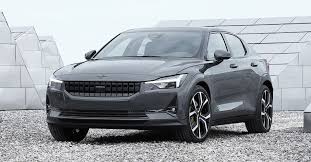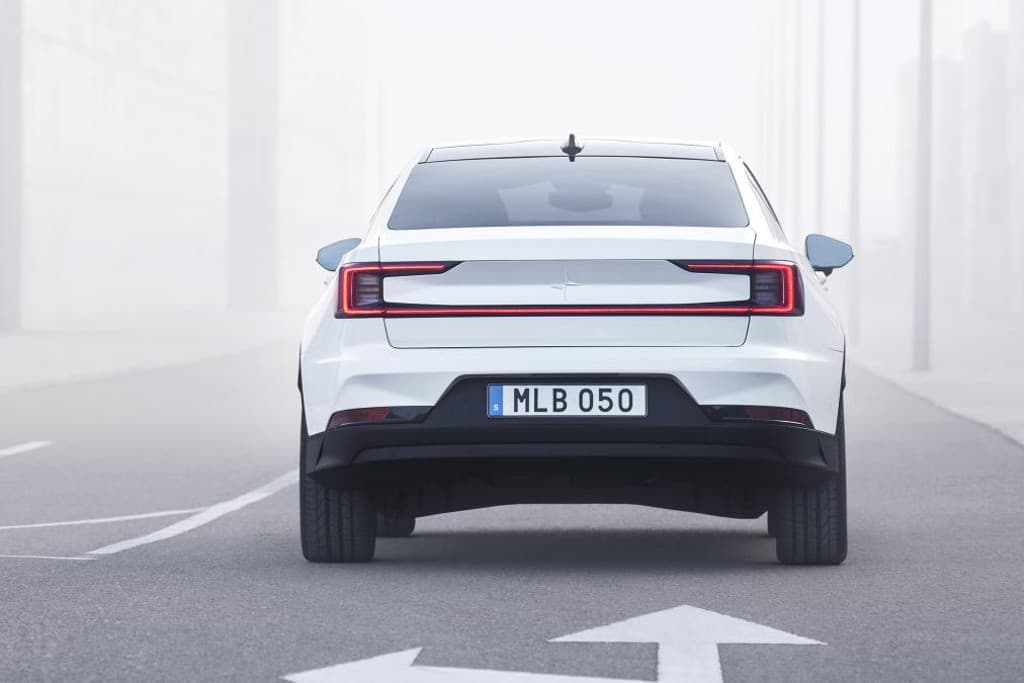Volvo's new Polestar 2 uses Veoneer 'brains' for safety
AUTOMOTIVE technology company Veoneer, Inc. has launched its state-of-the-art suite of collision mitigation technology on Volvo's new fully electric Polestar 2, which is due in Australia later this year.
Veoneer begins production of its advanced sensing technology and software aimed at enabling the Polestar 2 to become a leader in the next generation of car safety, in tuen with Volvo's mission. 
The system allows the Polestar 2 to gather information and data about its surroundings and the trajectory of vehicles around it to assist drivers to avoid potentially hazardous situations.
Key components of the technology suite include Veoneer's fourth-generation mono vision system, 77GHz front radar, and a state-of-the-art ADAS Electronic Control Unit (ECU). The Polestar 2 is the first vehicle to use the Zenuity sensor fusion software platform enabling industry-leading features like object detection, lane keeping aid, forward collision warning, adaptive cruise control, autonomous emergency braking, and traffic assist.
Veoneer's front 77 GHz radar unit and windshield-mounted mono vision camera keeps the Polestar 2's eyes on the road to take preventative measures whenever something encroaches on its path ahead.
Everything from disabled cars to pedestrians can be noticed by the Polestar 2, which then warns the driver (via a brake pulse, audio warning signal, and visual warning signal in the driver display) and then brakes automatically if needed. Automatic pre-braking, steering support, and incrementally tightening seatbelts also come into play, maximizing safety for the occupants.
Veoneer's fourth-generation mono vision system is designed with a 100-degree field-of-view and 1.7 megapixel resolution to support ADAS features necessary to achieve 5-star ratings for Euro NCAP. The system comprises fully integrated hardware and algorithms using deep learning technologies that identify objects such as cars, road markings, or road signs.
Veoneer's newest generation of 77GHz radars have improved performance and provide reliable and accurate situational awareness of objects surrounding the vehicle.
Veoneer's radar design has improved waveform and operates at extended ranges needed to achieve 5-star ratings for Euro NCAP.Veoneer's ADAS ECU is the 'ADAS brain' of the vehicle which hosts a sophisticated software feature stack along with feature software from other sensors to interpret the situation around the vehicle, and trigger ADAS features such as emergency braking or cross traffic alert. Veoneer's ADAS ECU is designed to be an open scalable hardware and software architecture that hosts algorithms.
"We are excited to start deliveries of Veoneer's fourth-generation mono vision cameras, upgraded 77GHz radars, ADAS ECUs and industry-leading feature software on the all-new Polestar 2, allowing drivers to interact with the Polestar and its surroundings in an advanced new way," Jan Carlson, Veoneer chairman, president and CEO said. 
"Veoneer is proud to bring new levels of safety and convenience to car drivers and occupants across the globe and the Polestar 2 is the first vehicle equipped with these advanced systems."
Mr Carlson said Veoneer, Inc. is a worldwide leader in automotive technology.
"Our purpose is to create trust in mobility," he said. "We design, manufacture and sell state-of-the-art software, hardware and systems for occupant protection, advanced driving assistance systems, and collaborative and automated driving to OEMs globally."
Headquartered in Stockholm, Sweden, Veoneer has 7,600 employees in 13 countries. In 2019, sales amounted to $1.9 billion.
The company is building on a heritage of close to 70 years of automotive safety development. In 2018, Veoneer became an independent, publicly traded company listed on the New York Stock Exchange (NYSE: VNE) and on the Nasdaq Stockholm (SSE: VNE SDB).
ends

 How to resolve AdBlock issue?
How to resolve AdBlock issue?